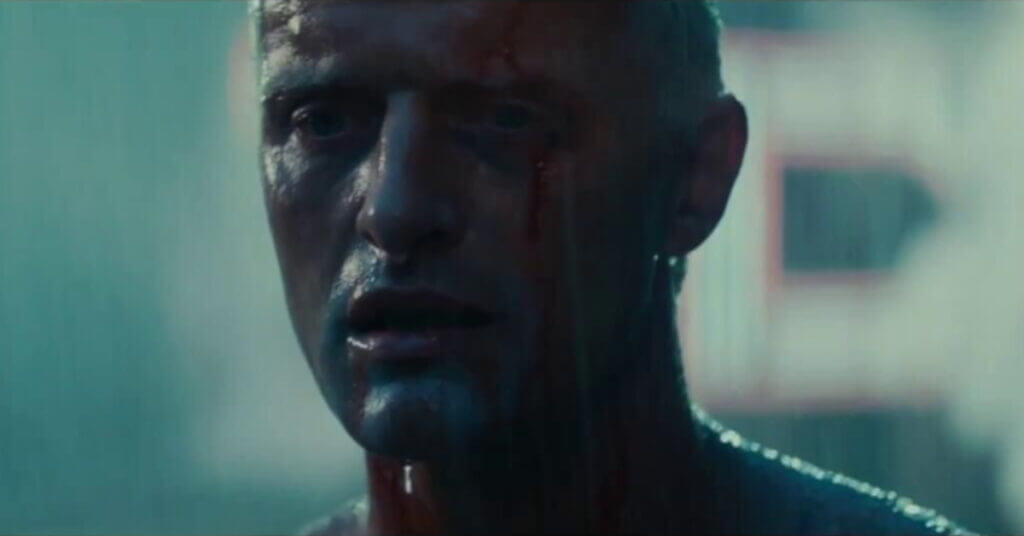Note: This was originally posted on my personal blog ‘Tiers in Rain’ but was written to be the introductory article for Cyberpunkery. I wasn’t sure then if it would be too personal to publish on Cyberpunkery but have since decided that it’s fine. So it’s here now.
To the Tannhäuser Gate and Back
It’s long been a dream of mine to write professionally. And indeed I have attempted to pursue this dream through many a (failed) website in the past. Unfortunately I never pursued it as fervently as I would have needed to in order to become even vaguely successful at it. I will chalk that up to immaturity, among a whole lot of other things.
Now that I’m a bit older and see the universe and myself disintegrating before my eyes, I realize that I can’t stop time. Which is ridiculous. But have therefore come to the conclusion that all I want to do is write—whether I’m successful or not—before entropy washes away all things and I dissolve into nothingness and become one with the Force or something.
So, I’m just going to do it. But this time, I’m going to stick to it.
As for the name, Tiers in Rain or ‘TiersInRain’ is simply the name I use for all my online activities, social networks, etc.. An obvious play on words, “tiers” could represent my love of video gaming (tiers as in tiers, or levels, in a video game), or possibly tiers of a tall building set amidst a dark city skyline. And the “tears in rain” part is where it gets a little intense.
The Tears in Rain Monologue
As I hinted at in the heading above, Tiers in Rain is a play on words and a reference to Blade Runner. Specifically, the quote is from the character of Roy Batty. If you are familiar with the film, you likely know where the expression “tears in rain” comes from. I believe this has a pretty profound meaning, especially when taken in context with what the film, and the book it’s based on, are about.
It comes from the infamous “tears in rain” monologue in the final scene of the film, in which Batty, who is the antagonist of the story, attempts to elicit empathy for his situation from the protagonist, Rick Deckard. The same empathy that he and other replicants in the story are accused of lacking.
“I’ve seen things you people wouldn’t believe. Attack ships on fire off the shoulder of Orion. I watched C-beams glitter in the dark near the Tannhäuser Gate. All those moments will be lost in time, like tears in rain. Time to die.”
-Roy Batty, Blade Runner
One of the most famous quotes in the history of film, and a heartbreaking one. Especially if you take into consideration that these memories that Batty remembers so powerfully and vividly, may not have ever happened. At least not to him. The replicants are artificial lifeforms that are given implanted false memories to make them feel, and therefore act, more human.
They also have a very short lifespan.
I Want More Life
Roy and his team come to Earth from off-world military servitude in order to find a way to extend their life. To do this he arranges a meeting with Dr. Tyrell, head of the Tyrell corporation and Roy’s creator.
There is sort of a spiritual undertone to this story, which can be seen as analogous to a mortal human seeking eternal life by becoming redeemed to God. And Tyrell, playing the role of God in the replicants’ lives, fails to fulfill that role sufficiently. He is unable to extend his life.
In no way do I see Roy as the hero of the story. He does kill people, including his creator. But he’s not exactly a complete villain either. He’s a tragedy. The creation of human greed and ego. Given a simulacrum of a human soul and human desires but denied a true human existence. He has the human instinct of survival. He has the desire to continue to live and he seeks it through his creator, his god. But since his god is human, it’s a fool’s errand.
I see myself as something similar to Roy Batty and also something different. A created being. Deeply flawed. Dying. And I seek to extend my life beyond the few years we as humans have to live on this Earth. And my memories are profound, to me at least.
Tyrell’s response to Roy is kind of heartless. He tells him that he can’t stop him from dying and suggests he simply accept that his life has been magnificent and that he’s had experiences that few humans ever will, albeit short.
He’s not wrong, but it doesn’t solve the problem. And that’s all Roy wants.
What It All Means
This might have something to do with why I want to write and why I started Tiers in Rain. I feel like my writing is here to sort of revel in my life experiences. It might be purely cathartic. It might not have any purpose beyond that. It doesn’t matter. I’m just putting it out there to say, “I was here. I experienced these things.” Tiers in Rain is here to contain those statements.
That wasn’t good enough for Roy. But it’s enough for me. Because I don’t have a flawed human god to patronize me the way Tyrell did with Roy. Whether my writing has meaning or not, I know that my experiences have greater meaning in the life beyond this Earth.
So the tears in rain monologue has a slightly different meaning for me. For me, it is the pain and the suffering, the sorrow and heartbreak, and the sting of death. Those are the moments that will be lost.
Like tears in rain.

